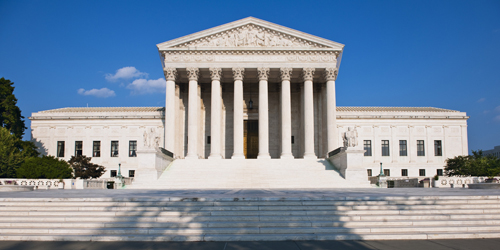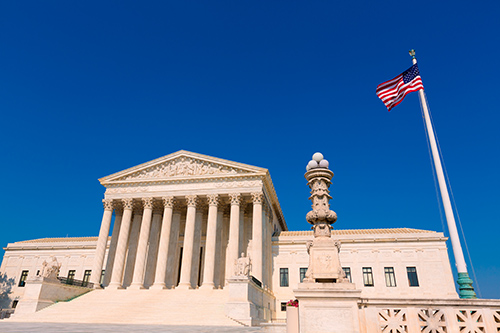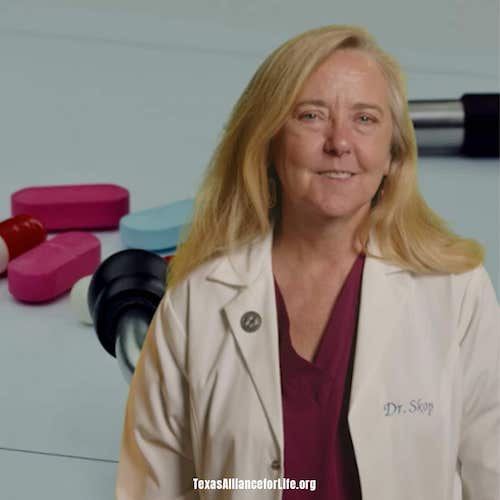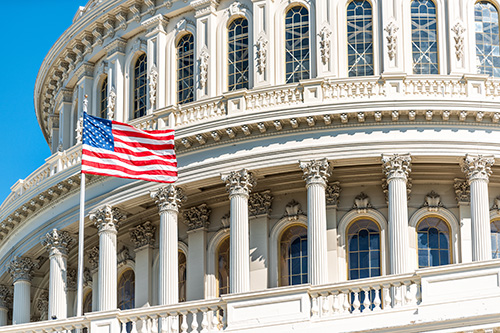Attack on HB 2 Goes to the U.S. Supreme Court
 The U.S. Supreme Court decided to consider a challenge to HB 2, the pro-life law passed by wide margins in the Texas House and Senate and signed into law by then-Gov. Rick Perry in July 2013. That case is known as Whole Woman’s Health v. Cole. The lead plaintiff runs a chain of abortion facilities in Texas, New Mexico, and other states. They are challenging two key safety components of HB 2.
The U.S. Supreme Court decided to consider a challenge to HB 2, the pro-life law passed by wide margins in the Texas House and Senate and signed into law by then-Gov. Rick Perry in July 2013. That case is known as Whole Woman’s Health v. Cole. The lead plaintiff runs a chain of abortion facilities in Texas, New Mexico, and other states. They are challenging two key safety components of HB 2.
We believe the Court should uphold HB 2 and let it go completely into effect.
To help defend the law, Texas Alliance for Life is submitting an amicus curiae (“friend-of-the-court”) brief with the Supreme Court. We have hired one of the top attorneys in the country to help us make the case that the safety regulations in HB 2 are reasonable, medically justified, and constitutional. While the number of abortion facilities have decreased in recent years in Texas to the current 19 (nine that meet HB 2’s requirements and 10 that do not), the reality is that abortion will remain readily available everywhere even if HB 2 is allowed to go fully into effect. That is the requirement imposed by U.S. Supreme Court precedence. Though certainly not the preference of Texas Alliance for Life, that point needs to be made. The difference will be that abortion providers who do not already meet HB 2’s safety standards will no longer get a free pass to perform abortions at a substandard level of safety.
Hospital privileges for abortion doctors – Challenged HB 2 provision
The plaintiffs are challenging the requirement in HB 2 that physicians who perform abortions have privileges at a local hospital. In the event of a serious complication from the abortion and the woman or girl has to be transported to a local hospital emergency room, the physician should have privileges at that hospital so that he or she can continue to treat the patient. This provision was originally authored by pro-life Rep. Cindy Burkett (R-Sunnyvale).
During committee hearings on HB 2 and related bills, the Legislature heard compelling expert testimony that the standard of care for other outpatient medical or surgical procedures is for physicians to have privileges at local hospitals. Physicians who perform abortions should be held to the same standard.
While the plaintiffs argue that hospitals deny privileges to physicians because they perform abortions, this claim fails a reality check. Longstanding federal and state laws prevent the denial of privileges because a physician performs abortions at other locations. The granting of privileges is most often based on a judgment by the physician’s peers as to whether the hospital wants to accept the liability of having the physician practice medicine on site. Furthermore, any shortage of abortion doctors should be attributed to a lack of physicians who are willing to perform abortions, given that tens of thousands of physicians practice medicine in Texas to have privileges.
Ambulatory surgical center safety standards – Challenged HB 2 provision
A second challenged component of HB 2, originally championed by former state Sen. Bob Deuell (R-Greenville) requires licensed abortion facilities to increase their safety standards to the level of licensed ambulatory surgical centers (ASCs), outpatient surgery centers. Unlike licensed abortion facilities, ASCs assure their operating rooms are sterile, are well prepared to deal with serious complications onsite, and have wide hallways for transporting patients to hospitals during emergencies.
Critics of the ASC safety standards for abortion claim that the necessary costs are too great and make abortion economically nonviable. Indeed, a number of abortion facilities have chosen to close rather than upgrade. However, ASCs are common and widespread in Texas. The Department of State Health Services currently licenses 464 ASCs across the state, including the nine that regularly perform abortions. The type of medical procedures performed in ASCs include colonoscopy and cataract removal. A dilation and curettage after a miscarriage, the same procedure used for the vast majority of elective abortions in Texas’ licensed abortion facilities, is also typically performed in an ASC or hospital setting.
There are now nine ASCs that perform abortions in Texas — Austin has one, Dallas two, Houston has two, Fort Worth has one, and San Antonio has three. Collectively, these nine have enormous capacity to perform the ~60,000 annual abortions in Texas, even without the other low standard facilities of which there are 10. Nearly all of the abortion facilities that fail to meet HB 2’s safety standards are in close proximity to one or more of these ASCs. Also, the Plaintiffs failed to prove in the lower court hearings that more ASCs that perform abortions would not become available when HB 2 goes fully into effect.








